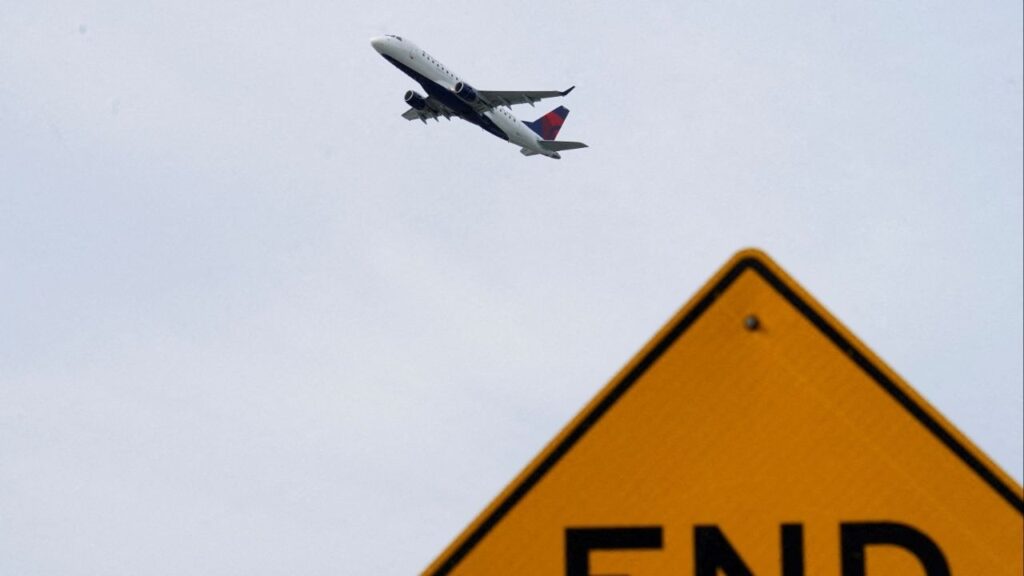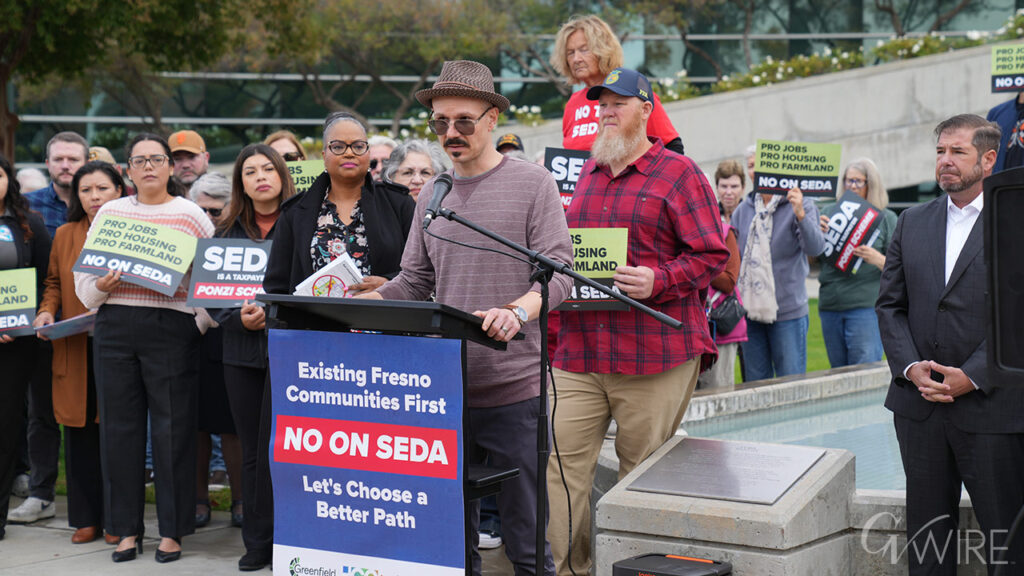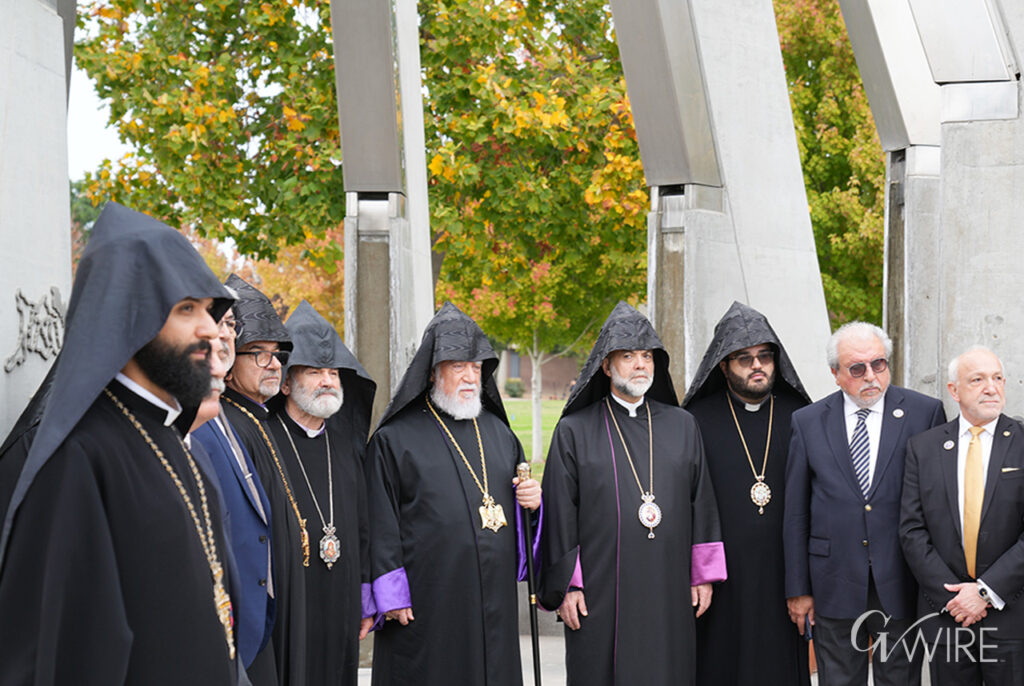Share
TALLINN, Estonia — The announcement of a cease-fire in Nagorno-Karabakh, just a day after Azerbaijan launched heavy artillery fire against Armenian forces, toned down fears of a third full-scale war over the region in the southern Caucasus Mountains.
But it still leaves significant unresolved questions about the conflict.
Under the agreement mediated by Russian peacekeeping forces, Nagorno-Karabakh’s separatist authorities made sizable concessions: disbanding the region’s defense forces and withdrawing Armenia’s military contingent. But the question of Nagorno-Karabakh’s final status remains open and is to be at the center of talks between the sides beginning Thursday.
Emotions and ethnic pride are intense on both the Azerbaijani and ethnic Armenian sides, with neither showing an inclination for compromise in the previous three decades of conflict that killed tens of thousands of soldiers and displaced hundreds of thousands of civilians.
WHAT IS THE REGION?
Nagorno-Karabakh, with a population of about 120,000, is a mountainous, ethnic Armenian region inside the borders of Azerbaijan that has been a flashpoint since the collapse of the Soviet Union.
The region and sizable surrounding territories came under the control of ethnic Armenian forces backed by the Armenian military at the end of a separatist war in 1994. But Azerbaijan regained the territories and parts of Nagorno-Karabakh itself after six weeks of fighting in 2020. The area is recognized internationally as part of Azerbaijan.
The latter conflict ended with an agreement to deploy about 2,000 Russian peacekeepers there, but tensions have soared since December when Azerbaijan began blocking the Lachin Corridor — the road that connects Nagorno-Karabakh with Armenia proper.
On Tuesday, after claiming that four soldiers and two civilians were killed by Armenian-planted mines, Azerbaijan launched heavy artillery fire that it characterized as an “anti-terrorist operation.” It said the attacks would continue until Armenian forces laid down arms and the Nagorno-Karabakh government disbanded.
On Wednesday, Azerbaijan and Nagorno-Karabakh authorities said a cease-fire was reached with Russian mediation that included the military demands, but said “reintegration” of the region was still to be discussed.
WHAT IS AT ISSUE IN THE TALKS?
Nagorno-Karabakh has strong cultural resonance for both overwhelmingly Christian Armenians and Muslim Azeris, holding a wealth of monasteries, mosques and other religious sites. Armenians in Azerbaijan have been victims of pogroms, while Azeris claim discrimination and violence at the hands of Armenians.
In light of that history, the ethnic Armenian regional authorities are unlikely to agree to step down without firm and enforceable security guarantees from Azerbaijan. They could seek a form of limited autonomy within the country, although that could be similar to the status Nagorno-Karabakh held under the Soviet Union, before erupting into violence with the USSR’s collapse in 1991.
Even as Nagorno-Karabakh suffered severe food shortages because of the blocked road from Armenia, local authorities resisted proposals to begin shipments from Azerbaijan, seeing it as a strategy by the government in Baku to absorb the region.
WHAT ALLIES DO BOTH COUNTRIES HAVE?
Turkey was the first country to recognize Azerbaijan’s independence following the collapse of the Soviet Union. Throughout the decades of conflict, it has been Azerbaijan’s steadfast ally.
Turkey and Azerbaijan share cultural, linguistic and ethnic ties, encompassed in the slogan “One Nation, Two States” used by Turkish President Recep Tayyip Erdogan during his U.N. speech on Tuesday.
Azerbaijan President Ilham Aliyev frequently visits Turkey and is said to have a close friendship with Erdogan. Armed aerial drones supplied by Ankara played an important role in Baku’s 2020 victory.
They enjoy robust economic ties, with Turkey being the main conduit for Azerbaijan’s oil and gas exports, and Turkish construction firms heavily involved in Azerbaijani projects. Their deep military ties have grown since the 2020 war.
Trade between Azerbaijan and Russia has been increasing, and Moscow is a major supplier of arms to the country.
Armenia is a longtime ally of Russia, sharing Christian roots, and it hosts a Russian military base. Both countries are members of the Collective Treaty Security Organization, a Moscow-led bloc of six former Soviet countries.
But their relations have deteriorated notably in the past year. Armenia sharply criticized Russian peacekeepers for failing to intervene in the blocking of the Lachin Corridor, and it angered Moscow by refusing to allow CTSO exercises on its territory and instead holding joint exercises this month with U.S. troops.
Russia also bristled at Armenia providing humanitarian aid to Ukraine since the 2022 invasion by Moscow.
WHAT ARE THE POSSIBLE CONSEQUENCES?
Armenian Prime Minister Nikol Pashinyan’s agreement to the Russia-brokered deal to end the 2020 fighting was widely unpopular at home, with opponents accusing him of being a traitor and large protests demanding his resignation.
The new hostilities and Nagorno-Karabakh’s quick capitulation to some of Azerbaijan’s demands will likely prompt a new wave of popular dismay in Armenia.
Pashinyan is aware of the potential power of such protests, having become prime minister himself on the heels of large demonstrations in 2018.
Azerbaijan could use the end of fighting to solidify its hold on territory returned to its control from the 2020 war.



















